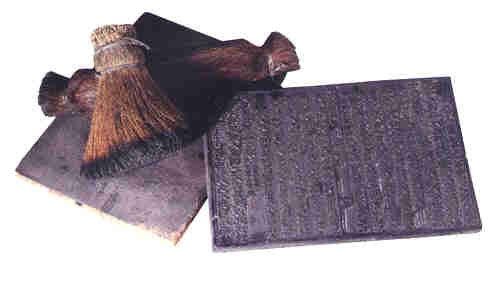keep writing
Titled ' Writing: Making Your Mark ', the British Library's latest exhibition explores the evolution of writing around the world over thousands of years.

British Library: Writing: Making Your Mark
The ancients did not have the convenience of dissemination today, but they did not think about simplifying the content. They would rather copy word by word, and then engrave scriptures and poems on clay tablets or wooden boards one by one, cover them with precious and rough paper, and press back and forth with the back of the paper to ensure that the ink is evenly printed on the paper. It seems so boring today, but it was an epoch-making technology back then!

There are basically two main purposes of text - recording and communication. Humans invented the text because of the limited memory and computing power of the brain, and used symbols as records when counting property, that is, the first generation of accounting systems. Later, because the scale of society grew and needed a way to transmit information, a set of symbols that everyone understood was invented, that is, words in different places. Therefore, in ancient times, only the ruling class needed to be literate. The average person lived in a small community. If anything happened, they could just knock on the door and say hello. No words were needed.
Religion is an important driver of writing, and earlier prints were either scriptures or clergy archives. Before the printing press, copying articles was a tedious and painstaking process, almost impossible to accomplish without religious and spiritual support. When printing was first developed, there weren't that many important messages to disseminate in large numbers, only scriptures were the words most people cared about and wanted to read.

Today, "long talk" must be a derogatory term. The more straightforward the text, the better. Elaborate words and euphemistic metaphors are unnecessary. The article is shortened to an outline and then a few key points. The shorter the sentence, the better. If we still write sentences instead of a few phrases instead. Non-practical articles are classified under the category of "literature", which is synonymous with "niche".
I grew up in the 80s after all. At that time, despite the development of film and television entertainment, the world of words was wider, and I could only organize my thoughts when I was writing articles. In the past year since I stopped writing, my organizational ability has rapidly regressed, and I have gradually become unclear about these words. I wanted to write again a month ago. I sat in front of the screen for most of the day, my mind was blank, and I was hanging upside down without a drop of ink.
Until last week Facebook popped up a notification saying there was a message on my page. I'm really flattered that a reader from more than a few years ago has asked why I haven't published for a long time, and they're still worried if something happened to me. It turns out that in addition to writing reports and emails, other people actually read these senseless thoughts.
Then I will continue to write without being ashamed.
Like my work? Don't forget to support and clap, let me know that you are with me on the road of creation. Keep this enthusiasm together!
